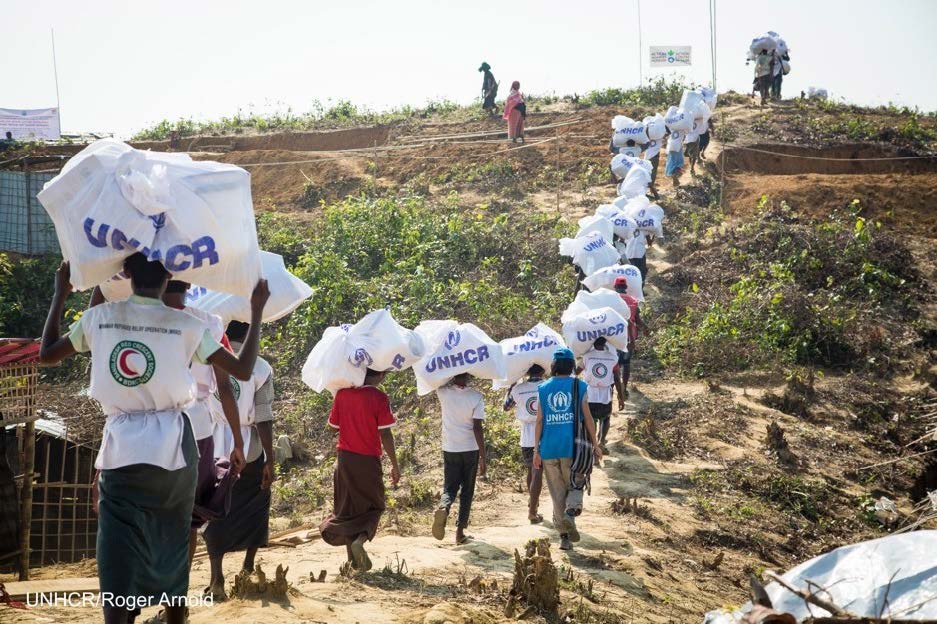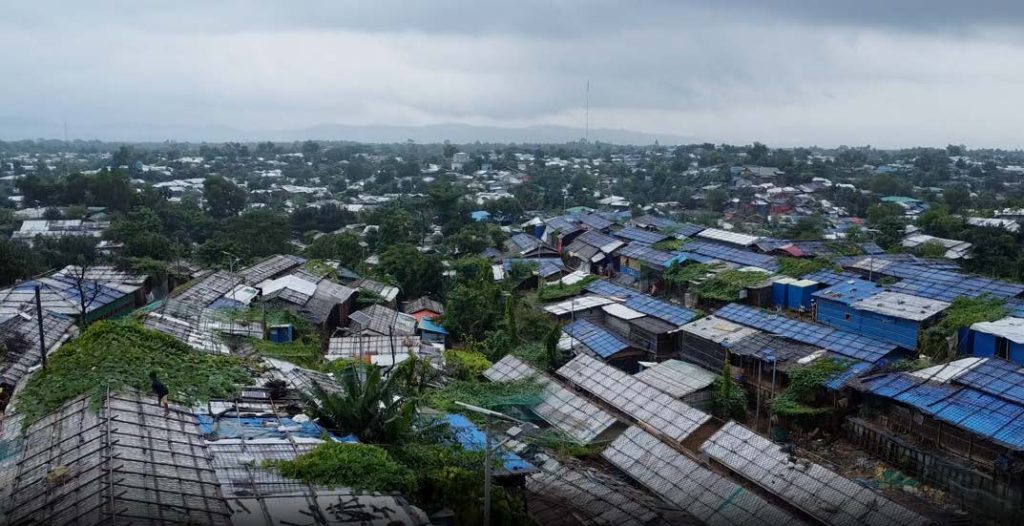
Photo credit: UNHCR/Roger Arnold. 26 October 2017
As we mark seven years since the large-scale Rohingya refugee arrival, UNHCR, the UN Refugee Agency, once again calls for sustained commitment from international partners to support the protection of nearly one million Rohingya hosted by Bangladesh, and to help secure solutions for a lasting end to their plight.
On 25 August 2017, some 700,000 Rohingya men, women and children were forced to flee Myanmar and seek protection in Bangladesh, joining those who had fled in previous years. The generosity by the Government and the people of Bangladesh in providing the Rohingya temporary refuge was supported by the international community and has been critical in meeting the refugees’ protection and basic needs, alongside assistance provided to local hosting communities. But in recent months security issues and funding uncertainties undermine all but the most critical and lifesaving assistance.
UNHCR welcomes Bangladesh’s renewed commitment to the refugees, set forth in Dhaka recently by Dr. Muhammad Yunus, Chief Advisor of Bangladesh’s Interim Government. We echo Dr. Yunus’s call for continued solidarity from the international community through consistent financial support and helping to ensure their “eventual repatriation to Myanmar, with safety, dignity and full rights.” Bangladesh’s humanitarian spirit, at a time of transition for the Bangladeshi people, deserves global appreciation.
In Myanmar’s Rakhine state, the escalated conflict has only worsened conditions for the Rohingya. Many remain stateless with limited access to higher education and jobs, and vulnerable to violence. Yet refugees in Bangladesh continue to say that they long to return to their homes and villages when it is safe to do so. A dignified and sustainable return to Myanmar remains the primary solution to this crisis. We call on the international community to demonstrate the political will to make this possible. We also call on the Bangladesh authorities to ensure that civilians fleeing the violence in Myanmar be allowed access to protection in Bangladesh.
Like all of us, the Rohingya aspire for better futures, not determined by religion, race, or the socio-economic conditions of their birth. In Cox’s Bazar and on Bhasan Char, 52 per cent of the refugee population are under 18 years old, many of them born in asylum or having spent their first years in refugee camps. With meaningful support and opportunities, they are capable of immense achievement. We must invest in Rohingya children, youth, women and girls, empowering them to lift their own communities. Through partnership and collective action, we can counter the harmful impacts of generations of violence and deprivation, including the harm caused by exploitative organized groups who prey on vulnerable youth in the camps.

Photo credit: UNHCR/Mosharaf Hossain. Aerial view of the refugee camp in July 2024
Already, thousands of Rohingya have taken positively to trainings and responsibilities to support critical services in the camps, including legal counseling, mental health, community health work, operation and maintenance of water and sanitation infrastructure, shelter repair, as well as serving as first responders to weather and fire incidents. Enhancing resilience through skills, education and livelihoods programmes is critical to helping the refugees to stand on their own feet and move beyond aid dependency. UNHCR calls on stakeholders to continue their support for refugees’ self-reliance.
In 2024, humanitarian agencies have appealed for $852 million to assist 1.35 million people, including Rohingya refugees and hosting Bangladeshi communities. We urge donors and private actors to step up their funding to the Rohingya response. The Rohingya people deserve our best, as do the generous people of Bangladesh who cannot be left to shoulder this crisis alone.
FOR MORE INFORMATION PLEASE CONTACT:
Shari Yasmin Nijman; [email protected]; +880 18 9480 2700
